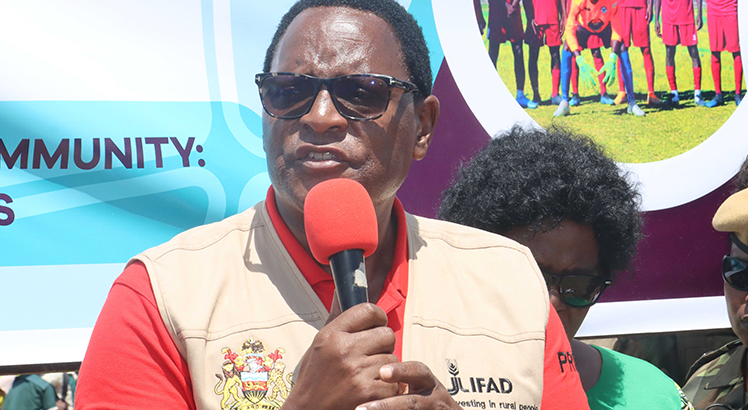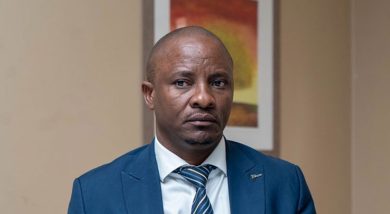bribe confessions
Some football referees have confessed being offered bribes to fix matches in the Super League. However, they claim to have rebuffed the offers which range from K10 000 to K50 000.
Meanwhile, analysts have warned that the revelations prove that the game faces serious corruption threats while calling on football authorities to step up the fight against match-fixing.
While some referees said the clubs offered the bribes through unidentified agents, others told Weekend Nation that well known club officials directly contacted them to fix the matches. However, they refused to disclose the identity of the officials.
Northern Region-based whistle man Clemence Kanduku said: “I have been offered bribes several times by club officials who physically approach me or phone me.”
“But I always rebuff them because corruption is not good. What I advise them is that they should just work hard and try to win their matches.”

Kanduku said he has not reported any of the “match fixers” to football authorities as those intending to bribe him did not persist after being rejected.
“When you want to report corruption first of all you must resist, if the person that offers the bribes persists then you can report. This is what we are trained to do,”
Another referee Misheck Juba said he has also been tempted once through an offer made via a private phone number.
“Someone called me and offered to bribe me so that I could favour his team. After I strongly dismissed him he didn’t come back,” he said.
Juba and Kanduku said those offering the bribes did not disclose how much they were prepared to pay.
“I think because I didn’t give them a chance to persuade me, they didn’t proceed to mention the figure,” Kanduku said.
Charity Ndozi, who also officiates Confederation of African Football sanctioned international matches, said she has also been offered bribes on a number of occasions.
She said the match fixing advances come from agents she suspects are sent by clubs which she refused to mention.
The referee said the agents have been reaching out to her through her friends.
”What happens is that these agents develop friendships with my friends. These friends invite me on pretext that they have something to tell me. When I meet them I find them in the company of these agents who make the offers,” she said.
Ndozi said the offers range from K10 000 to K50 000.
”Mostly they offer K10 000. But I am not someone who is carried away by some dirty money. I am not ready to sacrifice my career because of such peanuts,” he said.
Southern Region-based Happiness Mbandambanda also said she had, on a few occasions, been offered bribes which she rejected.
“I once threatened an agent that I would report him to police as he persistently phoned me to fix a game in his team’s favour. He was offering K10 000,” she said.
Mbandambanda said she would not take bribes as that would jeopardise her international career.
”When I officiate in international matches I receive more than K250 000 from one match. I wouldn’t trade such opportunities with K10 000,” she challenged.
Federation of International Football Associations (Fifa) trained anti-match fixing referees instructor Patrick Kapanga said the referees revelations clearly show that football is under corruption threats.
”Football authorities need to strategise and unite in fighting match-fixing. What is needed is to intensify anti-match fixing awareness, “he said.
He also condemned most referees for failure to report those that offer the bribes.
”I know it’s difficult to obtain evidence against these fixers but if the referees can be reporting the bribery attempts to me, I would report direct to Fifa which can send investigators who can expose them,” he said.
Well known referee Duncan Lengani suggested that being close to the club officials makes it easy for referees to attract bribery offers.
“Club officials fail to approach me [with bribes] because of my integrity. I distance myself from team officials and maintain the ethics of my profession,” he boasted.
Recently, suspended Nyasa Big Bullets general secretary Kelvin Moyo implicated an unnamed trustee in match-fixing allegations.
However, up to now, Moyo is yet to reveal the identity of the trustee and did not appear at a disciplinary hearing where he was summoned by the club.
Though he has not yet given details he defiantly wrote on his Facebook page: “I will drop bombs like [in] Hiroshima.”
FAM general secretary Alfred Gunda conceded that match fixing is a serious problem but hoped to address it through its currently instituted Fifa backed Integrity Strategy.
He said through the strategy all its affiliates will have integrity officers who will be secretly following up on tips of match fixing allegations.
“The associations which include those responsible for referees, coaches and clubs will have well trained officers that will be tracking any match fixing matters. We hope that this will clean up the game,” he said.
“Added to that all our affiliates will be asked to sign an integrity pact which will ensure that they support our efforts to combat corruption,” he said.
The Integrity Strategy is being coordinated by Major Thokozani Chazema, who, according to FAM, has been undergoing Fifa supported courses. n





